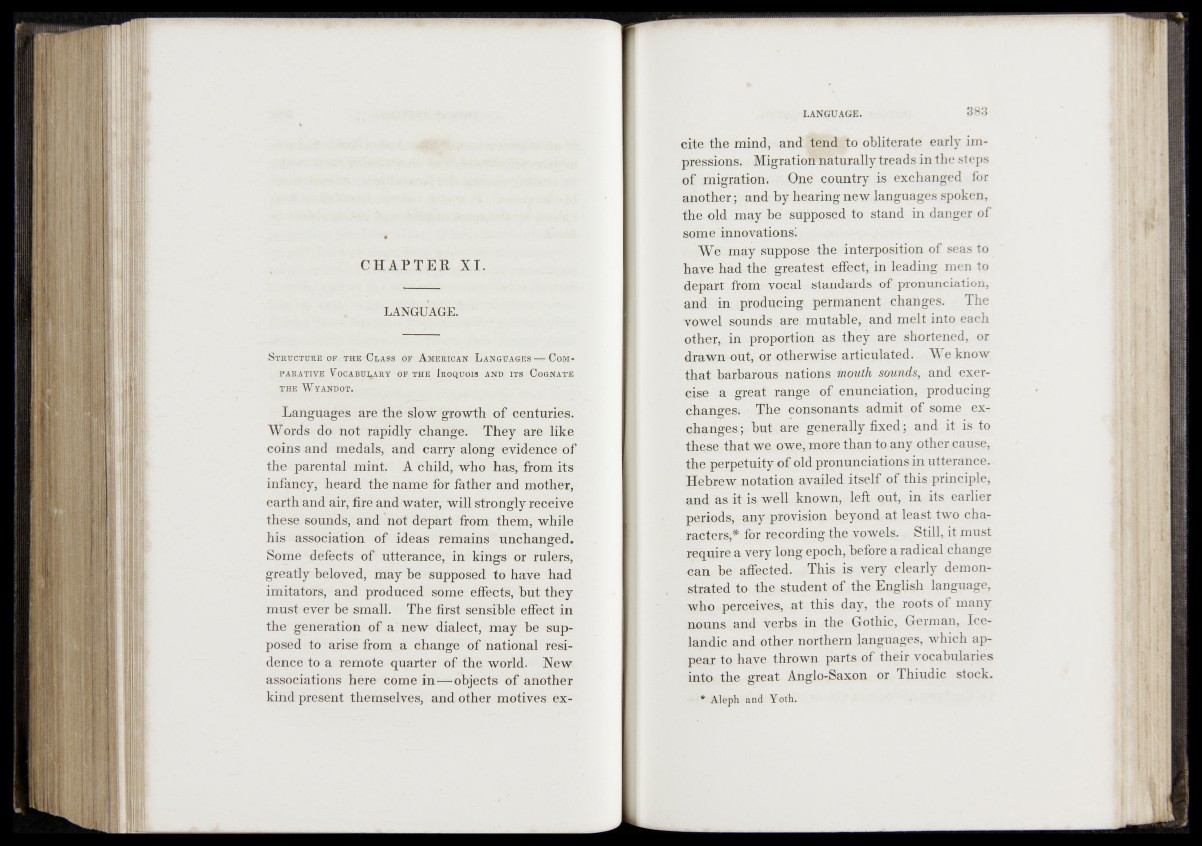
CHAPTER XI.
LANGUAGE.
S trhcthre of the Class of American LA?irenJA*<sps — Cb p -
PARATIVE VoCABU^RY OF THE IROQUOIS, ANH ITS Oo&NATE
theWyandot.
Languages are the slow growth of centuries.
Words do not rapidly change. They are like
coins and medals, and carry along evidence of
the parental mint. A child, who has, from Its
infancy, heard the name for father and mother*
earth and air, fire and water, will strongly receive
these sounds, and not depart from them, while
his association of ideas remains^unehanged.
Some defects of utterance, in kings or rulers,
greatly beloved, may be supposed to have had
imitators, and produced some effects, hut they
must ever be small. The first sensible effect in
the generation of a new dialect, may be supposed
to arise from a change of national residence
to a remote quarter of the world. New
associations here come in—objects of another
kind present themselves* and other motives oxcite
the mind, and]tend to obliterate early impressions.
Migrationmaturally treads in the steps
of migration. One country is exchanged for
another; and by hearing new languages spoken,
the old may be supposed to stand in danger of
some innovations!
We may suppose the interposition of seas to
have had the greatest effect, in leading men to
depart from vocal standards of pronunciation,
and in producing permanent changes. The
vowel sounds are mutable, and melt into each
other*, in proportion as they are shortened, or
drawn out, or otherwise articulated. We know
that barbarous nations mouth sounds, and exercise
a great range of enunciation, producing
changes* The consonants admit of some exchanges;
btit are generally fixed; and it is to
these that we owe, more than to any other cause,
the perpetuity of old pronunciations in utterance.
Hebrew notation availed itself of this principle,
and as it is well known, left out, in its earlier
periods, any provision beyond at least two characters,*
for recording the vowels. Still, it must
require a very long epoch, before a radical change
can be affected. This is very clearly demonstrated
to the student of the English language,
who perceives, at this day, the roots of many
nouns and verbs in the Gothic, German, Icelandic
and other northern languages, which appear
to have thrown parts of their vocabularies
into, the great Anglo-Saxon or Thiudic stock.
* * Aleph and Yoth.